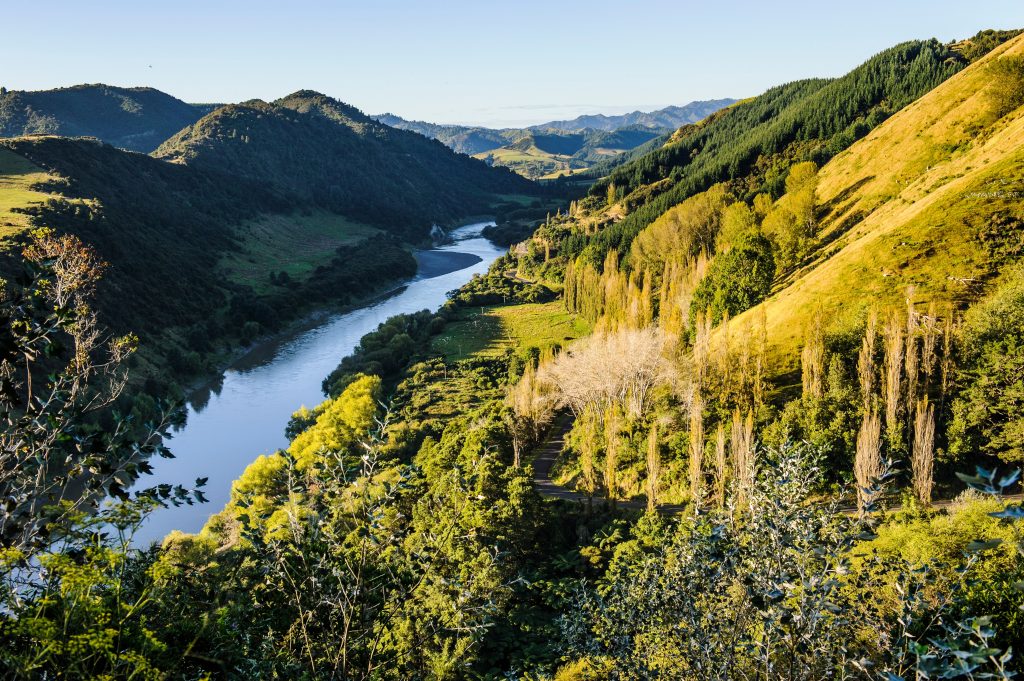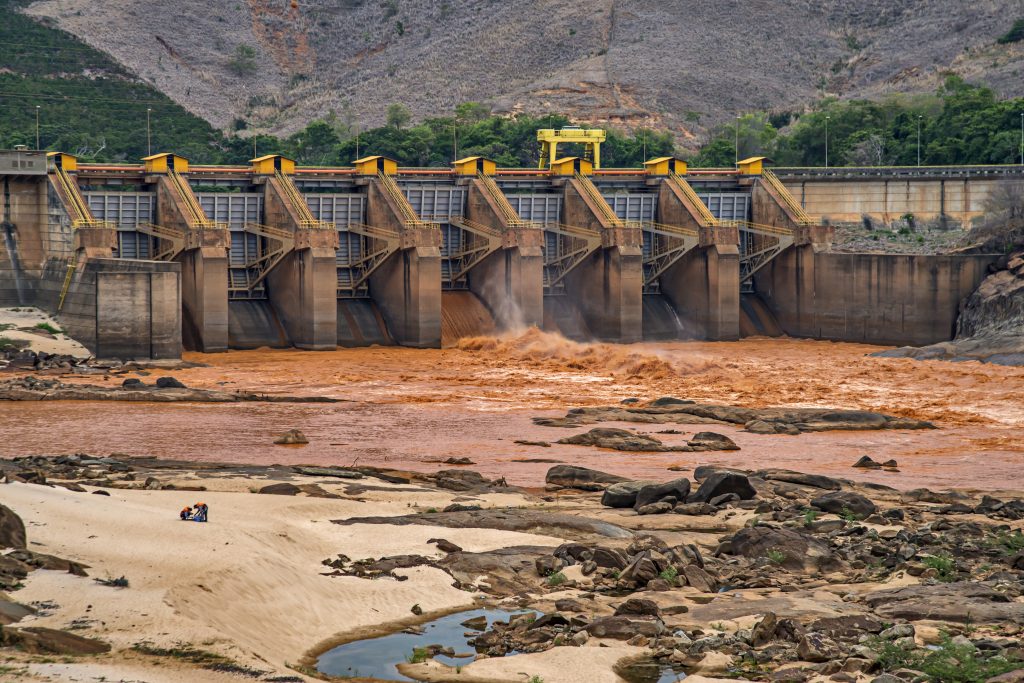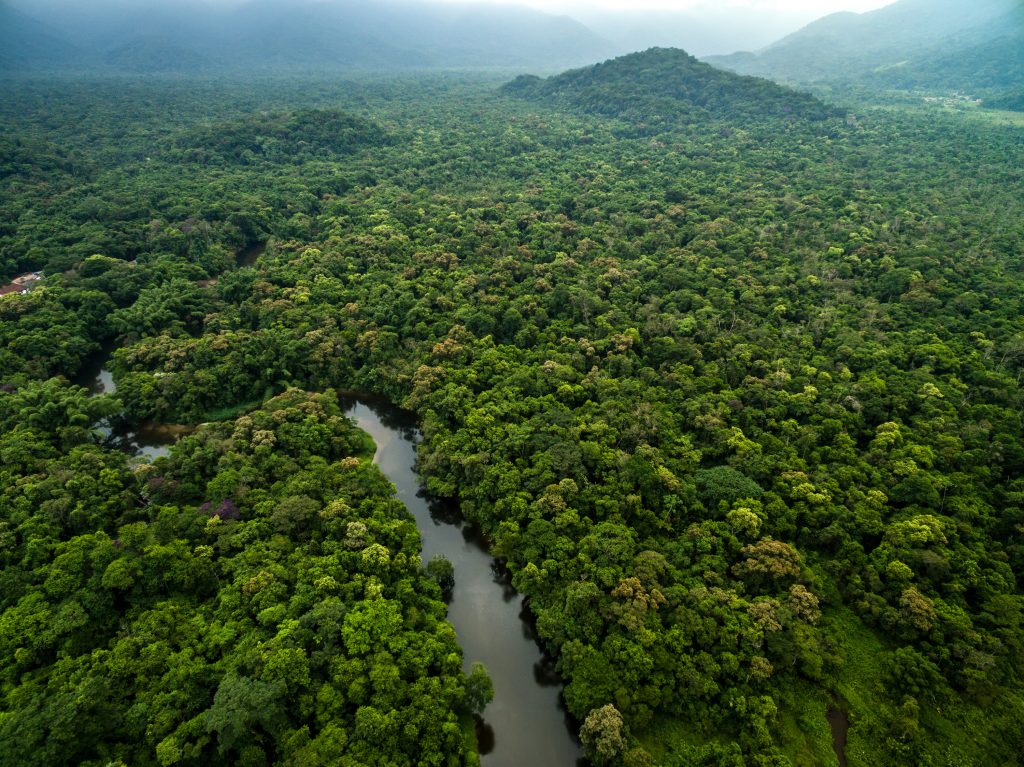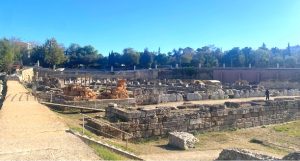Did you know you can be sued by a river?
In 2019, New Zealand’s sacred Whanganui River was granted legal personhood after 100+ years of fierce advocacy from the Māori people to have their own view of the river recognized. Now, the river has a right to enter contracts, own property, and if anything threatens or abuses its waters, such as pollutants or harmful activity, the river even has a right to sue.
The “Rights of Nature” global movement is a cultural and legal mission to give natural entities legal rights, which has been gaining momentum ever since Ecuador enshrined the rights of nature in its constitution in 2008. It proved that the shift to an intrinsic worldview, where non-human entities are guaranteed legal protection as if they are autonomous people, is contagious.

View over the Whanganui River in the lush green countryside, Whanganui River road, North Island, New Zealand, Pacific
This past summer, the city of Linhares, Brazil, granted legal personhood to the waves at the mouth of the Doce River, which spills into the Atlantic ocean, in an effort to protect their waters in the wake of a the Mariana dam disaster in 2015, which released 43.7 million cubic meters of mine tailings into the river, resulting in the death of entire fish populations and the destruction of 3,630 acres of riparian forest. It is the first time that a part of the ocean has been granted legal rights.
The bill passed in June of 2024 recognizes “the wave’s right to continue breaking perfectly at the mouth of the Doce River, and acknowledges the ocean as a living being subject to intrinsic rights to existence, regeneration, and restoration.”
The right to restoration is significant because it guarantees that all people, communities, and nations can demand that Brazilian authorities enforce the rights of their nature.

Doce River, river of mud in ‘Minas Gerais’, Brazil, Mariana disaster by Samarco.
The movement to respect and adhere to the intrinsic value of natural entities may be a hard pill for swallow for many who believe in human dominance over the natural world.
However, the rights-of-nature movement is nothing new, and legal scholars are not the first to consider such a project. Native communities worldwide have implemented the intrinsic value of nature into their cultural and legal practices for centuries, cultivating a symbiotic relationship between a person and their environment.
Indigenous laws follow a system which treats and respects non-human entities as if they are relatives. This rejects the standard worldview of a hierarchal natural world and instead reinforces one that registers natural entities on a level playing field, with wants and needs, just like humans.
In response to the threats of hydroelectric dam developments, the Innu Council of Ekuanitshit and the Minganie Regional County Municipality of Quebec, Canada, established the Muteshekau Shipu (Magpie River) as a legal person. The Innu act as an intermediary and make decisions on the river’s behalf.
“If the government wants to effectively protect Nature, they should consider this option so protected areas would be protected along with our rights,” said Chief Piétacho of the Innu to The Conversation.
Our legal system hinges on the attitude that human beings are at the apex of the natural world, and subsequently natural entities suffer at the hands of human ambition, rather than being treated as an intrinsically worthy of protection. As a result, we see the natural world declining at unprecedented rates.

Aerial View of River in Rainforest, Latin America
This new paradigm shift to granting legal personhood to the natural world will require a significant shift in culture to be successful. Western laws are not designed to carefully consider and address the qualms of the natural world, but Indigenous communities are well positioned to be intermediaries for their sacred natural artifacts. By placing agency back with the communities who have been robbed of their environment, culture, and power, we guarantee more care and effort in the direction of granting the natural world personhood and, as a byproduct, grant nature legitimacy.
“When we see rivers as living beings that are part of our community then that does actually profoundly change the way we speak about them, the way we make laws about them, [and] the way we make decisions about them,” said Erin O’Donnell, a water law expert, to CNN.


